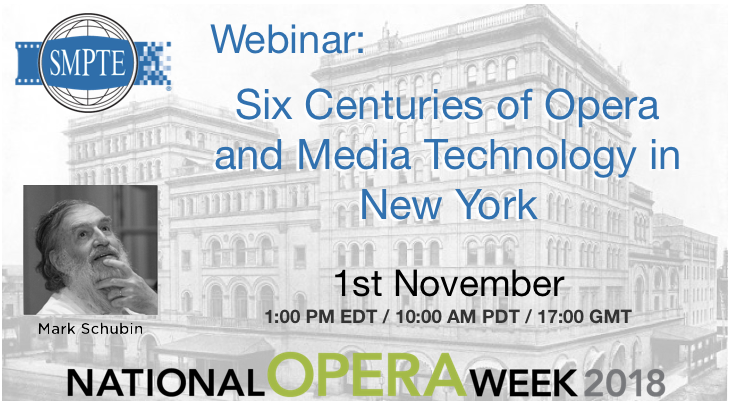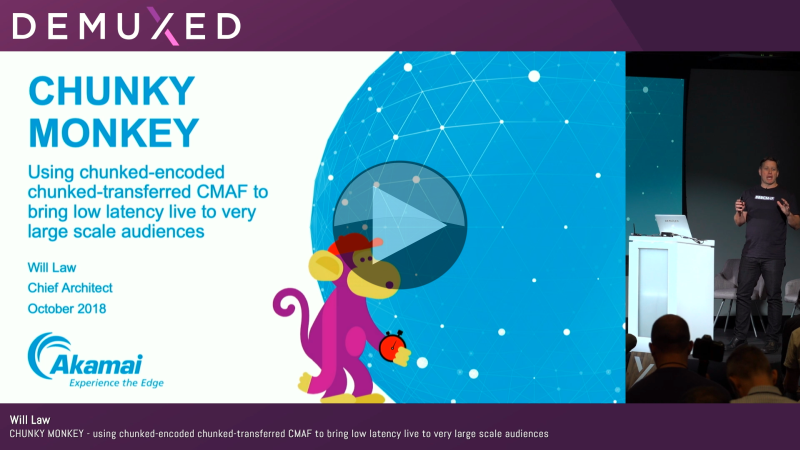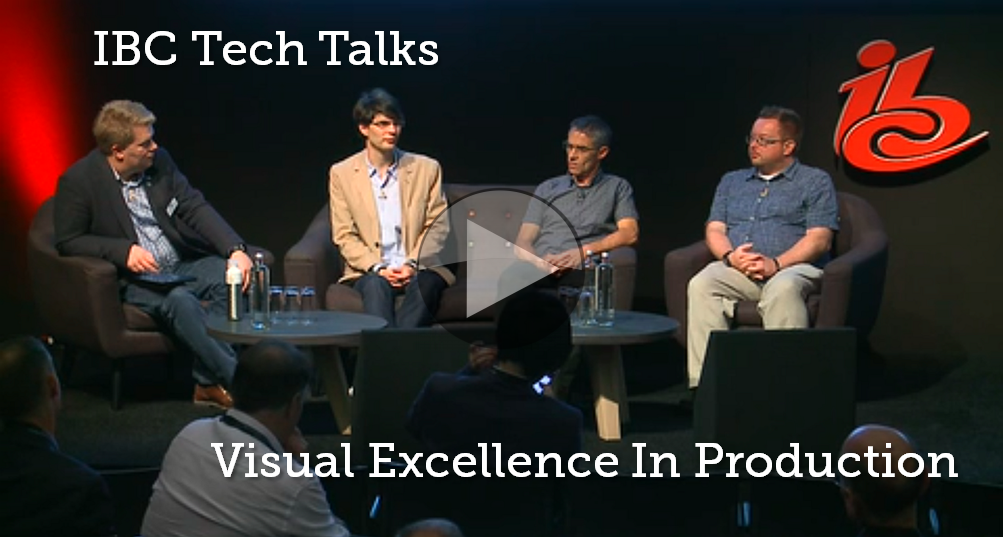
Date: 1st November, 2018. 1PM EDT / 10AM PDT / 17:00 GMT
Electronic home entertainment was invented in New York City for opera and so were headphones. The first compatible-color television program seen at home was opera in New York and so was the first bootleg recording. New York’s media technologies for opera date back to the 16th century and in the 21st century include dynamic video warping with depth-plane selection and multi-language live cinema transmissions to all seven continents (first described in a New York newspaper in 1877).
The genesis of much modern tech that we use today in broadcasting – and many business models – had their birth in Opera over a hundred years ago. Find out more!
A 200-ton music synthesizer broadcasting opera music in New York in 1907? An opera lighting dimmer in 1638? Opera for military communications tests?
It may be difficult to believe, but it’s true!
This is a special SMPTE New York-Section National Opera Week webcast event featuring Mark Schubin, esteemed engineer and explainer.
Register now!











